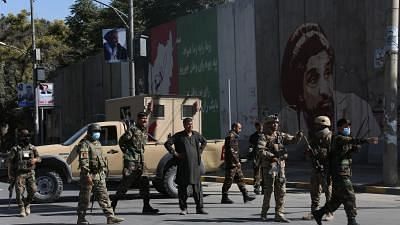The Hindustan Times published a story this week headlined “India again kept out of extended troika meet on Afghanistan called by Russia”. Rezaul H. Laskar, the head of that outlet’s Foreign Affairs desk, is wrong when writing that India was “kept out” of the upcoming talks in Doha. I explained in my recent analysis for The Print titled “Indian experts are wondering why New Delhi has been sidelined in Afghanistan. This is why” that India’s exclusion from this framework is actually due to its own decisions and isn’t Russia’s fault at all.
Russian publicly financed international media outlet TASS reported on 20 July that Russian Special Presidential Envoy for Afghanistan Zamir Kabulov said that “Only countries that have an unequivocal influence on both sides [of the conflict] participate.” Since India refuses to hold public talks with the Taliban due to its leadership’s insistence that the Afghan group is an irredeemable terrorist organization, New Delhi cannot participate in this structure. Russia won’t make an exception for India since this would undermine the Extended Troika’s efficacy.
Read more: Cornered India can not expect Russian help after humiliation by China: Andrew Korybko
India’s increasing hostility
Mr. Laskar also reported that “The Indian side has taken up the inclusion of Pakistan – which New Delhi contends is backing the Taliban – at these meetings with the Russian side, people familiar with developments said on condition of anonymity.” This might be true, but if so, then it was arguably counterproductive for India to do this. TASS reported earlier this week that Mr. Kabulov said that “Personally, I think that it is Pakistan and Iran that are the most important and influential countries in terms of the Afghan issue.”
This policy pronouncement was redundant since all relevant Russian actions with respect to the Afghan peace process over the past few years prove that the Kremlin regards Pakistan as its priority partner on this issue. For whatever reason, India’s leadership, strategists, and even many of its intellectuals have difficulty accepting this political fact. Nevertheless, the sooner that they accept it, the more effectively they’ll be able to formulate pertinent policies. By reportedly taking this issue up with Russia, India showed that it’s still in denial about this.
It can’t be known for sure, but that might have left a less than ideal impression among India’s Russian counterparts, to put it mildly. They likely expected that New Delhi would have already accepted this political fact as being driven by Moscow’s pragmatic interests in promoting the Afghan peace process. Russian-Pakistani cooperation on this issue isn’t aimed against any third parties, let alone against India, but reportedly taking this up with Moscow suggests that New Delhi is paranoid and might not completely trust its historical ally anymore.
Read more: The State of Russia-Pakistan Relations in Late 2018 – Andrew Korybko
Moving along, Mr. Laskar reported that “Russia has said it keeps India informed about developments on Afghanistan under the troika format, which includes the US and China, though it has shown little inclination of including India in discussions under the external troika even after acknowledging India’s stakes in Afghanistan, the people said.” Once again, this is an inaccurate portrayal of the political situation since it wrongly implies that Russia is leaving India out of the Extended Troika when in reality India is voluntarily excluding itself.
Revising the misconceptions
Finally. Mr. Laskar concluded that “While India has backed the government of President Ashraf Ghani, it has repeatedly opposed the imposition of any regime by force. However, the Russian side appears opposed to the continuation of the Ghani government and favours an interim set-up.” This, too, isn’t accurate. Russia isn’t “opposed to the continuation of the Ghani government”, though it does indeed believe that “an interim set-up” is the most pragmatic compromise between all parties in order to advance the peace process.
There’s a difference between being “opposed” to something and pragmatically proposing alternatives. The first-mentioned implies a degree of hostility and hints that Russia might take some form of active measures, whether overt or covert, to pressure that which it’s allegedly “opposed” to, which in this case is the Ghani government. The second, however, suggests proactive thinking aimed at facilitating a compromise between warring parties and doesn’t hint at any overt or covert measures to pressure either side to that end.
Read more: Korybko’s response To Hoodbhoy: Security dilemmas ruined Afghanistan
Upon reflecting on everything shared in Mr. Laskar’s report, it’s clear that India has yet to accept the political fact that only itself is to blame for not participating in the Extended Troika. Russia requires that all participants “have an unequivocal influence on both sides”, which New Delhi is loath to do for reasons largely related to the uncomfortable optics of its Hindu nationalist government publicly talking to a group that it still insists are irredeemable terrorists. This is India’s sovereign right, but it’s also why it can’t join the Extended Troika.
Andrew Korybko is a political analyst, radio host, and regular contributor to several online outlets. He specializes in Russian affairs and geopolitics, specifically the US strategy in Eurasia. The article has been republished and the views expressed in the article are the author’s own and do not necessarily reflect the editorial policy of Global Village Space.














